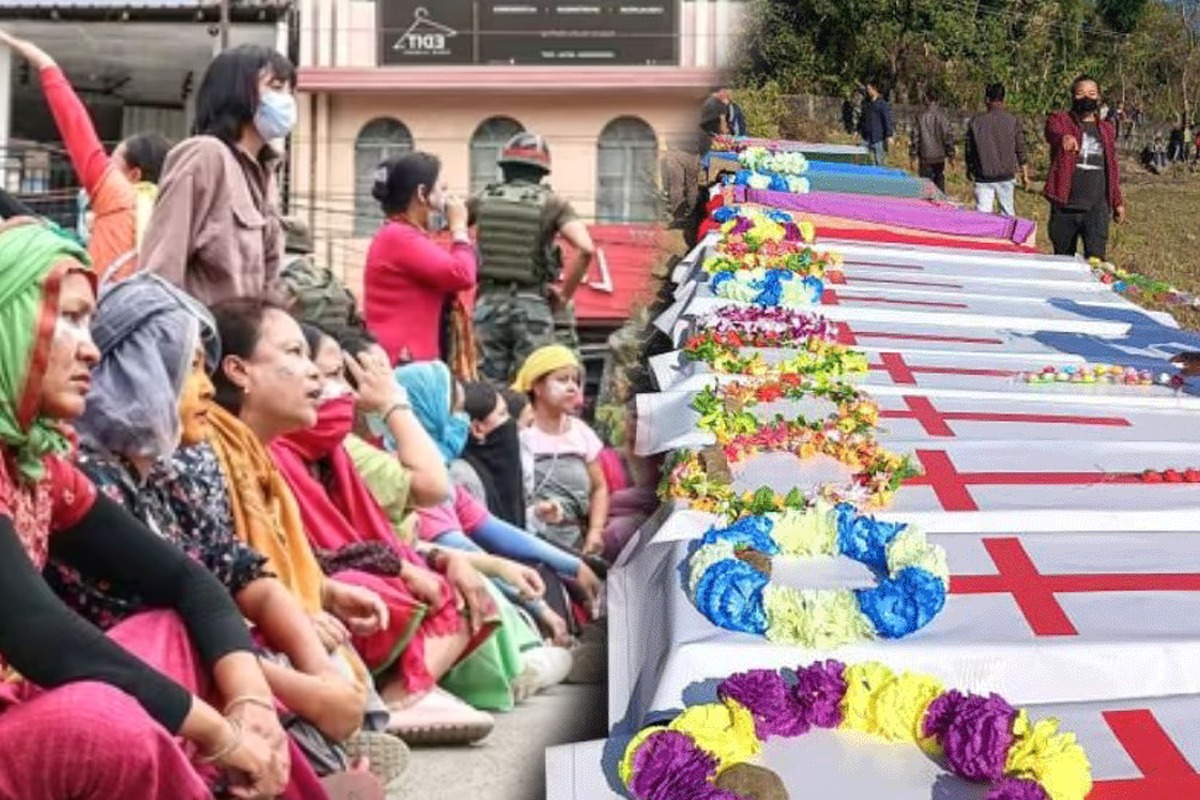GUWAHATI: The recent transfer of 64 bodies of the victims from the Kuki and Meitei communities, who were killed in the ongoing ethnic clashes in Manipur since May, marks a long-awaited closure for their families and relatives. The bodies, which were kept for months in the morgues of Imphal and Churachandpur, were finally handed over to their respective communities after the Supreme Court intervened and ordered a dignified disposal of the unclaimed bodies.
This development is a welcome step towards addressing the crisis that has engulfed Manipur for the past months, claiming at least 196 lives and displacing around 50,000 people. The ethnic violence, which erupted on May 3 between the numerically dominant Meiteis, who predominantly live in the Valley, and the tribal Kuki community, who are in majority in a few hill districts, has exposed the deep-rooted fault lines and grievances in the northeastern state.
Also Read: Society at blame for Karnataka tribal woman paraded naked: Social activists
The Supreme Court’s order came on the recommendations of a three-member panel, which was formed by the apex court in August to look into the relief, rehabilitation and remedial measures in the strife-torn state. The panel, comprising former judges and senior advocates, had visited Manipur and interacted with various stakeholders, including the state government, civil society groups, victims’ families and representatives of the Kuki and Meitei communities.
The panel had observed that the situation in Manipur was “extremely grave” and that there was an urgent need to restore peace and normalcy in the state. It was also noted that the prolonged retention of the bodies in the morgues was causing immense distress and anguish to the families of the deceased, as well as creating health and hygiene issues. The panel had suggested that the bodies should be disposed of in a dignified manner, with due respect to the sentiments and customs of the communities involved.
Initially resisting the Supreme Court’s order, the Manipur government eventually complied, notifying victims’ families to claim bodies for the last rites. However, the process faced challenges as some families demanded justice and compensation, while Kuki groups insisted on bodies being brought to their districts instead of Imphal. After negotiations involving state authorities, panel members, and community leaders, a resolution was reached. The bodies were airlifted to Kuki-dominated districts, and Meitei victims’ bodies were moved to the state capital. Funeral services for Kuki victims are scheduled amid a 12-hour shutdown in Kangpokpi’s Sadar Hills area.
The transfer of the bodies is a significant milestone in the long and arduous journey of the victims’ families, who have been waiting for months to bid adieu to their loved ones. It is also a ray of hope for the people of Manipur, who have been living under the shadow of fear and violence for too long. The Supreme Court’s intervention has not only ensured a dignified closure for the deceased but also paved the way for a possible dialogue and reconciliation between the warring communities.
The Supreme Court, the panel, the state government, and the community leaders have all played their part in bringing some relief and solace to the victims’ families. But the ultimate responsibility of restoring peace and harmony in Manipur lies with the people themselves. They have to rise above their differences and grievances and work together for the common good of the state and the nation. Only then can Manipur truly heal from the wounds of the past and move forward towards a brighter future.










